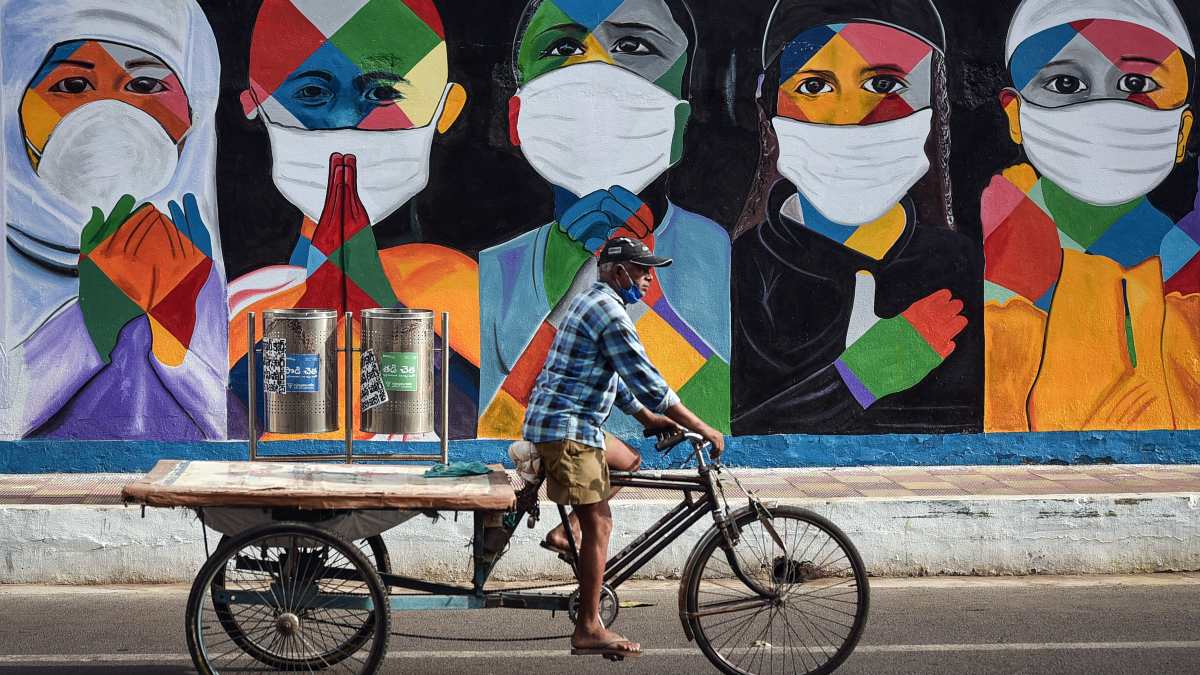


India has lost 80,776 people to the Coronavirus till date, Health Ministry data revealed on Tuesday. With 1,054 deaths India now has a toll that is barely 5,000 short of total Covid-19 cases reported in China, the ground zero of the virus that turned into a pandemic since the first case was reported in Wuhan in December 2019. China has so far re- corded only 85,202 cases while India that reported its first Covid-19 case on 30 January, now has 49,30,236 cases, according to the Ministry of Health and Family Welfare data.
Out of the total cases, 9,90,061 are the active, 38,59,399 have been discharged, while 79,292 were cured in the past one day. While the recovery rate is 78 per cent, the fatality rate is 1.64 per cent. On July 17, India had logged 10 lakh cases, which then doubled to 20 lakh in 20 days, on August 7. The country added another 10 lakh on August 23 and went past 40 lakh on September 5.
Maharashtra continues to be the worst-hit state with a total of 10,60,308 cases, including 29,531 deaths; followed by Andhra Pradesh, Tamil Nadu, Karnataka and Uttar Pradesh.
The US is the only nation worse hit than India with 65,53,303 cases and and 1,94,489 deaths so far.
Meanwhile, scientists now believe that Covid-19, like common respiratory viruses, will become seasonal in countries with temperate climates, but only when herd immunity is attained. Till that time, it will continue to circulate across the seasons. These conclusions published in the journal Frontiers in Public Health, highlight the absolute importance of public health measures needed just now to control the virus.
“Covid-19 is here to stay and it will continue to cause outbreaks year-round until herd immunity is achieved,” said study researcher Hassan Zaraket from the American University of Beirut in Lebanon.
“Therefore, the public will need to learn to live with it and continue practising the best prevention measures, including wearing of masks, physical distancing, hand hygiene and avoidance of gatherings.” Zaraket added.
Collaborating author Hadi Yassine, of Qatar University in Doha, affirms and states that there could be multiple waves of Covid-19 before herd immunity is achieved. “We know that many respiratory viruses follow seasonal patterns, especially in temperate regions,” Yassine said.
For instance, influenza and several types of coronaviruses that cause the common cold are known to peak in winter in temperate regions but circulate year-round in tropical regions.
The authors reviewed these seasonal viruses, examining the viral and host factors that control their seasonality as well as the latest knowledge on the stability and transmission of SARS-CoV-2.
The researchers explain that virus survival in the air and on surfaces, people’s susceptibility to infections and human behaviours, such as indoor crowding, differ across the seasons due to changes in temperature and humidity.
These factors influence the transmission of respiratory viruses at different times of the year. However, in comparison to other respiratory viruses such as the flu, Covid-19 has a higher rate of transmission (R0), at least partly due to circulation in a largely immunologically naive population.
This means that unlike the flu and other respiratory viruses, the factors governing seasonality of viruses cannot yet halt the spread of Covid-19 in the sum- mer months. But, once herd immunity is attained through natural infections and vaccinations, the R0 should drop substantially, making the virus more susceptible to seasonal factors.
“Whether our predictions hold true or not remains to be seen in the future. But we think it’s highly likely, given what we know so far, Covid-19 will eventually become seasonal, like other coronaviruses,” Zaraket noted.
With IANS inputs